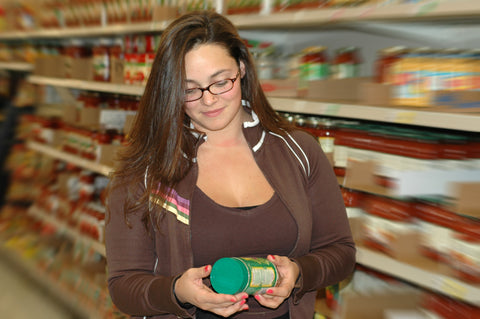You have no items in your shopping cart.

Staying on the topic of being a conscious consumer from earlier this week, let's discuss the need to examine the labels on our food products. This can be an overwhelming topic when we realize how much injustice and suffering goes in to our everyday food. (1) There are many websites that can help us make more ethical food choices. The easiest way to identify the products we should avoid is to pay attention to the corporations that have exploited our planet and fellow humans.
Water is a fundamental substance that all humans require. It is becoming a limited commodity in some communities. This is especially true in countries like India where a prominent corporation unlawfully pumped 1.5 million liters (400,000 gallons) of water a day from local reserves, leaving famer without enough water to irrigate their crops, and draining the community’s drinking water supply. (1) This is not the only shameful act that has been performed; atrocities such as child labor, blackmail, abduction, intimidation, and rape are also linked to companies that produce everyday products.
We should only buy products that are labeled as “Is Not Tested On Animals” or “Cruelty Free.” If the product does not say either of these things, chances are they used animal testing. Multiple brands of pet food have engaged in animal testing. For instance, a study was conducted in 2011 by a prominent company where healthy puppies were infected with canine distemper virus, then fed a probiotic to compare results to a test group; a similar study was later performed with cats. [1) It particularly troubling that food for animals is tested on animals.
Palm oil is a globally traded agricultural commodity item that is in our foods, detergents, make-up, and other cosmetics. It is also used an alternative to fossil fuels in the form of biofuel. Palm oil itself is not a bad; but the way that palm oil is harvested is the problem. The large-scale destruction of the rainforest in Indonesia is rapidly displacing wildlife species. The rainforest is being demolished in order to create the massive palm oil plantations. The production of palm oil is also responsible for widespread human rights violations as the palm oil companies forcefully remove Indigenous Peoples and communities from their lands. (2) There are fewer than 100 Sumatran rhinos left in the wild due to the destruction of their habitat; all for a processed food ingredient. (2) It is time to call upon corporations to only use sustainably sourced palm oil.
Last we must discuss GMOs, or genetically modified organisms. Monsanto is one of the largest corporations that have pushed the Food and Drug Administration to approve GMOs for human consumption. Monsanto Given the vast reach of its products, and the scope of its ambitions, Monsanto differs from other companies. (1) Monsanto also owns a vast network of subsidiaries, many of which, unlike their parent company, market and sell organic and vegan products. (1) This is particularly troubling because they are misleading people into thinking they are buying a healthy and ethical product. Make sure all of your labels say Non-GMO.
Now that we have this information, what do we do with it? The easiest way to make a difference is to buy locally grown organic products. Going to a farmers market is not only fun, but when buying locally you are supporting your community and getting a better, healthy product. Can’t afford to buy organic products? Look into volunteering at a local share farm.
Take the time to find out what you are supporting with your purchases, and start making a difference today!
- http://www.foodispower.org/ethical-food-choices/
- http://ecowatch.com/2014/05/02/why-is-palm-oil-bad/
]







